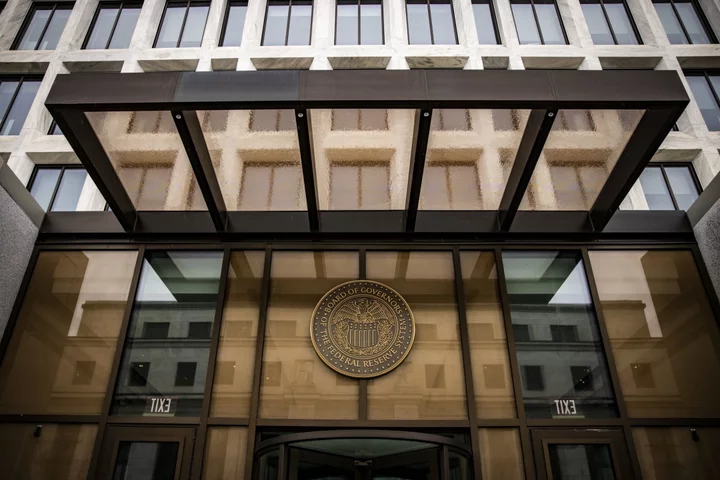The interest the US pays on its debt soared in October from a year before, showcasing the rising cost to the government of higher yields on Treasuries.
Interest on the public debt was $88.9 billion in the first month of the fiscal year, up 87% from the figure in October 2022, Treasury Department data released Monday showed.
Despite the surge, the budget deficit for the month of October was notably smaller than a year ago — down 24% to $66.6 billion from $87.9 billion. Adjusting for calendar differences, the deficit shrank by 4%.
That shrinking was largely driven by unusually high tax receipts. Much of that increase is attributable to taxes that were deferred for California and certain other regions between April and September of the last fiscal year to October of this year, a Treasury official said.
Monday’s figures come days before a potential shutdown of many federal government operations amid another partisan standoff in Washington over the budget. Republicans in the House, where they hold a majority, are aiming to force cuts in spending that Democrats, who control the Senate, reject. Funding runs out after Nov. 17.
Rising Rates
Higher interest costs, propelled by the Federal Reserve’s most aggressive interest-rate hiking campaign in more than a generation, continue to be a key contributor to the deficit.
Weighted average interest for all outstanding debt was 3.05% at the end of October, the highest since 2010 and an 87 basis point increase from a year ago, US Treasury data show. Seven-year Treasury yields were about 4.68% Monday afternoon, against an average of 2.04% for the decade through 2019.
While the US has enjoyed a surprisingly resilient economy, a ballooning deficit points to longer-term fiscal risks that in recent months have spurred fresh warnings from economists, politicians and credit-rating agencies. For the fiscal year through September, the US deficit effectively doubled.
The US was threatened with the loss of its last top credit rating last week, as Moody’s Investors Service signaled it was inclined to downgrade the nation because of wider budget deficits and political polarization.

